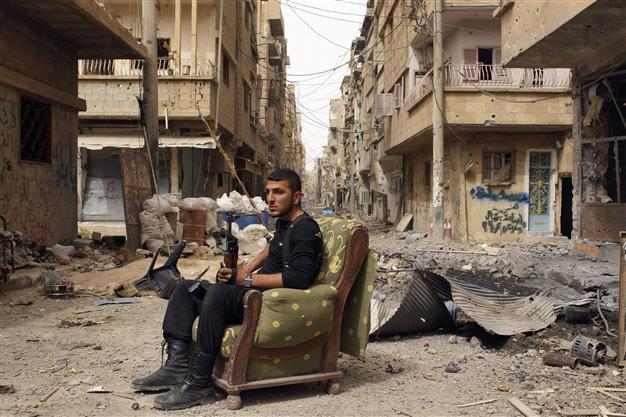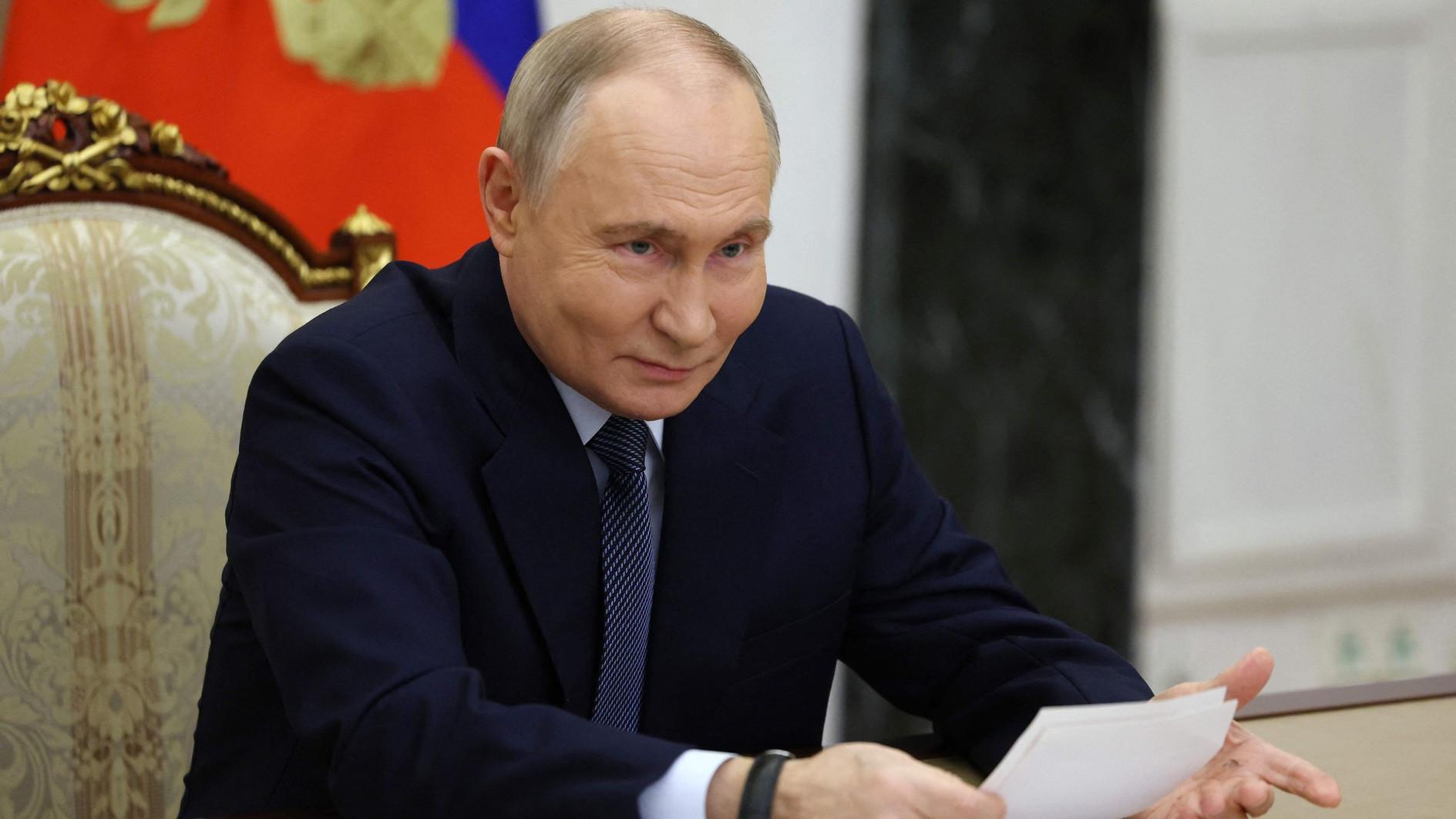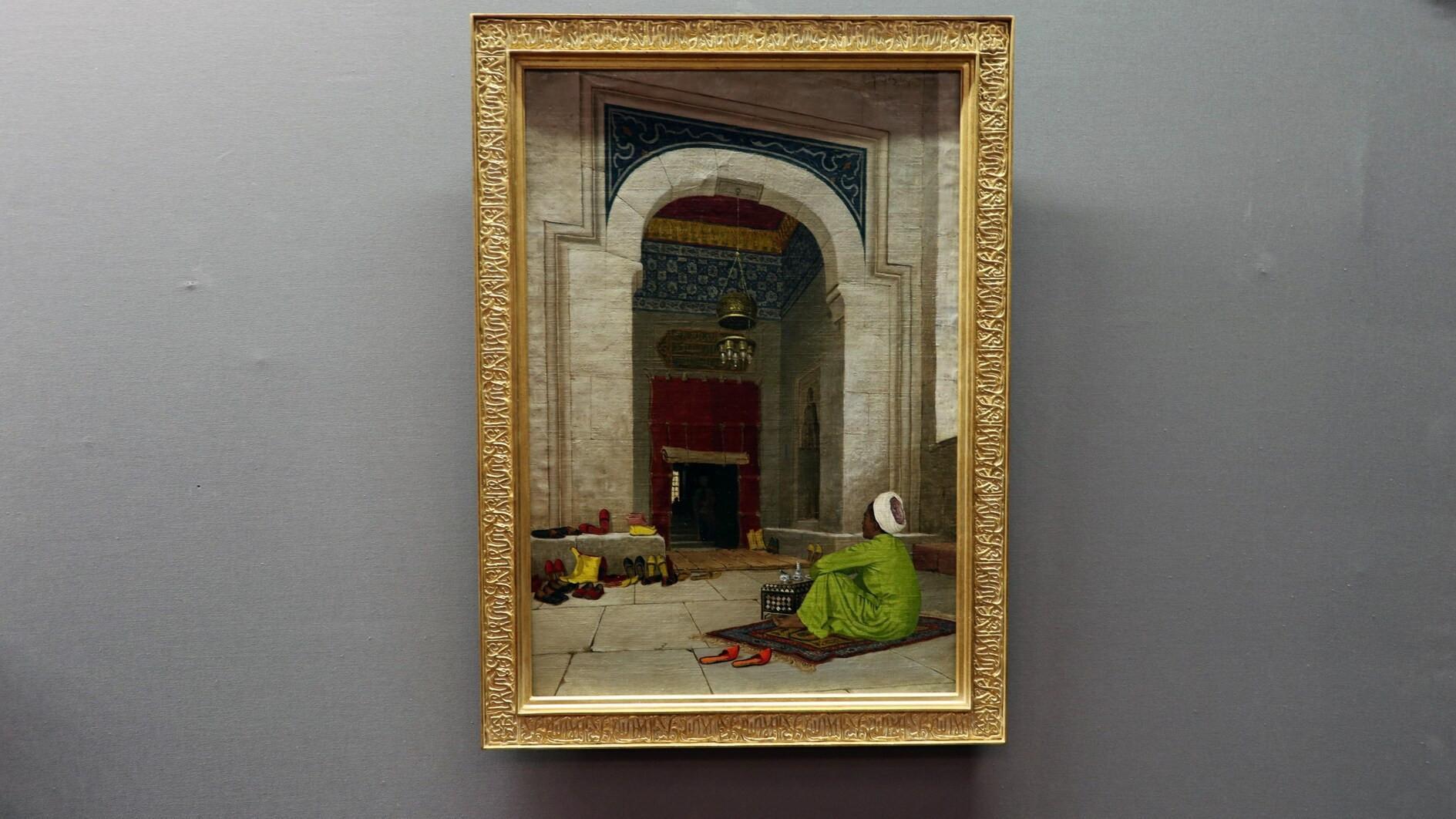Syria's chemical weapons: a mysterious arsenal
NICOSIA - Agence France-Presse

A member of the Free Syrian Army holds his weapon as he sits on a sofa in the middle of a street in Deir al-Zor, in this April 2, 2013 file photo. REUTERS photo
Syria's arsenal of chemical weapons has existed for several decades and is considered one of the biggest in the Middle East, but its exact makeup and size remain guesswork as few facts have emerged.The White House said Thursday that Syria had likely used chemical weapons against rebel forces on a "small scale," during the conflict which has raged in the country for the past two years. However it emphasized US spy agencies were still not 100 percent sure.
Britain said it has "limited but persuasive" evidence of the use of chemical weapons in Syria, including sarin gas.
On April 8, Syria refused to accept a chemical weapons team, as proposed by UN chief Ban Ki-moon, to probe the alleged use of chemical weapons in the country's conflict.
The Syrian regime acknowledged for the first time on July 23, 2012 that it had chemical weapons and threatened to use them in case of a Western military intervention, but never against the Syrian population.
The government and the armed opposition accuse each other of having used chemical weapons during the conflict.
Syria is one of the few countries not to have signed the Chemical Weapons Convention and is believed to have a large stockpile of sarin and other nerve gases.
The Syrian programme was launched in the 1970s with the help of Egypt and the former Soviet Union.
In the 1990s Russia provided support, followed by Iran since 2005, according to the Nuclear Threat Initiative (NTI), an independent organisation tracking data on arms of massive destruction.
According to an analyst at the non-proliferation and disarmament programme of the International Institute for Strategic Studies (IISS), at stake is the biggest chemical weapons programme in the Middle East, created at the start with the goal of counterbalancing Israel's nuclear programme.
The analyst says that important information on the programme has been collected following the defection of several Syrian military officers, but that the information is "far" from being complete.
According to an expert at the Monterey Institute for International Studies in the United States, Syria has "hundreds of tonnes" of diverse chemical agents.
"Their armoury of chemical agents is quite strong," according to a French specialist in chemical weapons at the Foundation for Strategic Research.
"The Syrians have managed to master the synthesis of organophosphorus', that's the last generation, the most efficient and most toxic of chemical weapons. In this family, one finds sarin and VX, as well as...mustard gas," he said last July.
On January 30, the Israeli air force bombarded a site of ground to air missiles and an adjacent military complex near Damascus suspected of holding chemical agents, with Israel saying it feared the transfer of chemical weapons to the Lebanese Shiite movement Hezbollah, according to a US official.
According to the New York Times, the raid could have damaged Syria's main research centre into biological and chemical weapons.
















